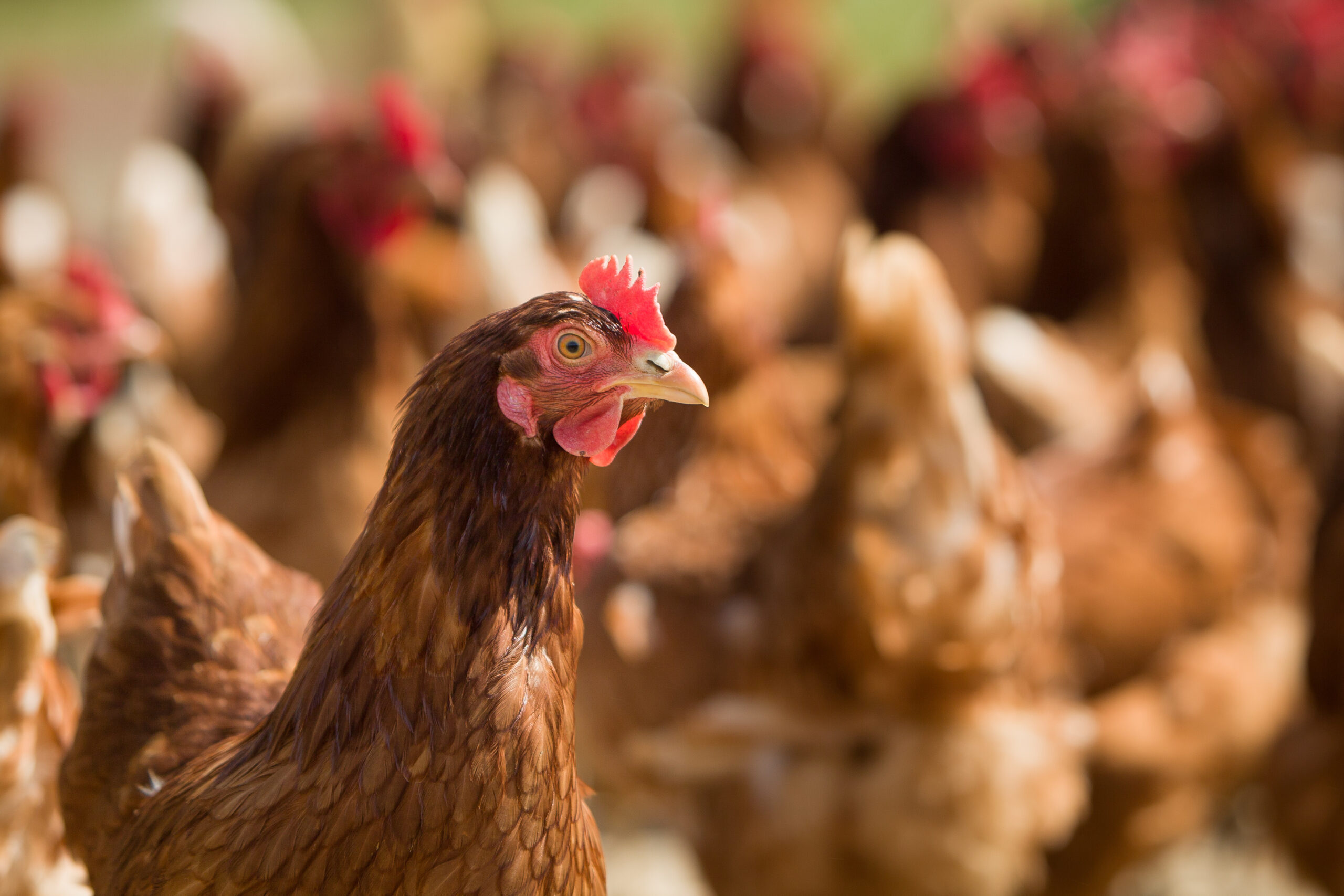
Gut health
Poultry diseases – Measures to prevent intestinal diseases in poultry and stabilize intestinal health – Find out more here!

Poultry diseases – Measures to prevent intestinal diseases in poultry and stabilize intestinal health – Find out more here!
A healthy intestine is a prerequisite for the well-being and a functioning immune system of poultry and also plays a crucial role in terms of herd productivity and food safety. The basis of an intact gut is a balanced ratio of microorganisms in the gut, which has a major impact on the digestibility of various nutrients and thus on the health and productivity of the animals. The balance of the gut microbiome and thus gut health can be compromised by a variety of potential pathogens of bacterial, viral and parasitic origin.
Poultry is particularly sensitive to gastrointestinal parasites. The main gastrointestinal parasites of poultry include unicellular parasites such as coccidia or histomonads, roundworms such as tracheal worms, stomach worms, roundworms, hairworms and appendicitis, as well as tapeworms and scratches. Consequences of parasitic poultry diseases such as worm infestation often include poorer feed conversion due to damage to the intestinal mucosa, even if there is only a small infestation; a massive infestation can lead to diarrhoea, emaciation, a drop in performance and even intestinal obstruction.
Young animals that lack the necessary defense mechanisms are often affected, while older animals have often learned to live in balance with their parasites. Other debilitating, sometimes unavoidable factors such as changing feed, vaccinations, transport, high stocking densities and suboptimal climatic conditions, a lack of biosecurity or other stress have a negative impact on the balance of microorganisms in the intestine. The intestinal mucosa becomes increasingly permeable, which means that more water can enter the intestine and the faeces become liquefied. Damp litter and subsequent illnesses such as foot pad inflammation are among the negative consequences. Therefore, hygiene and balanced and appropriate feeding are basic requirements for a healthy animal population.
Despite all the measures taken, intestinal diseases in poultry keep coming back. It is then a good idea to have something on hand at all times as a precaution or when problems first arise.
We recommend DOSTO® oregano to support and stabilize the gastrointestinal system!
Made in Germany
Certified
Over 20 years of expertise